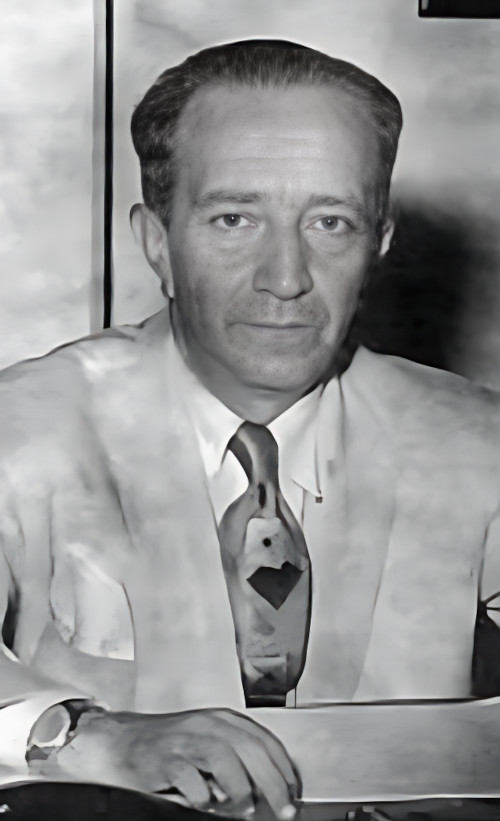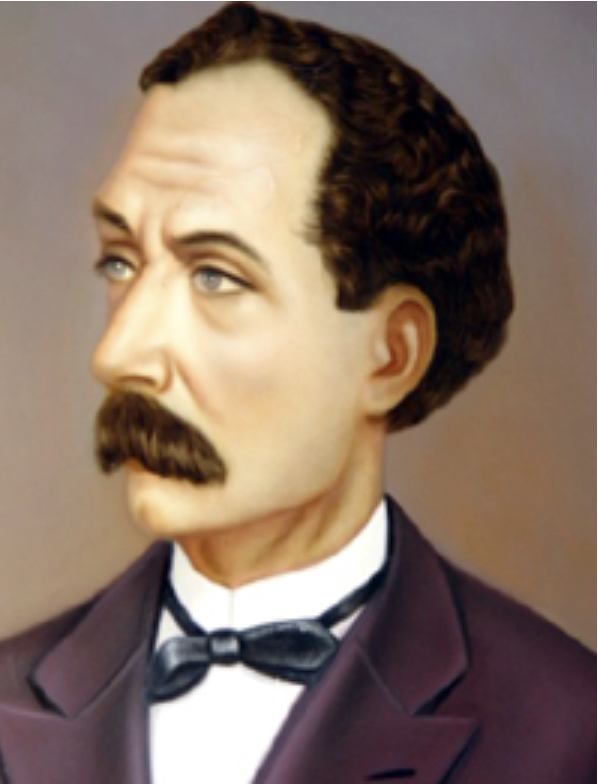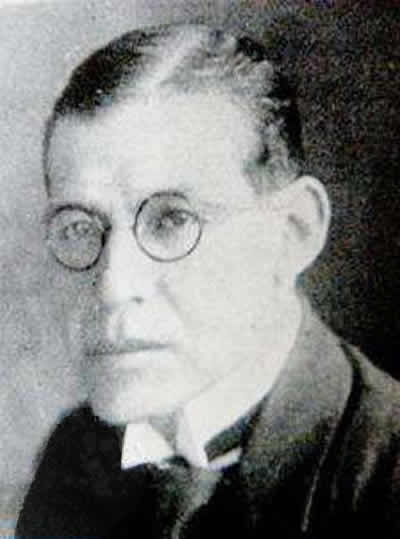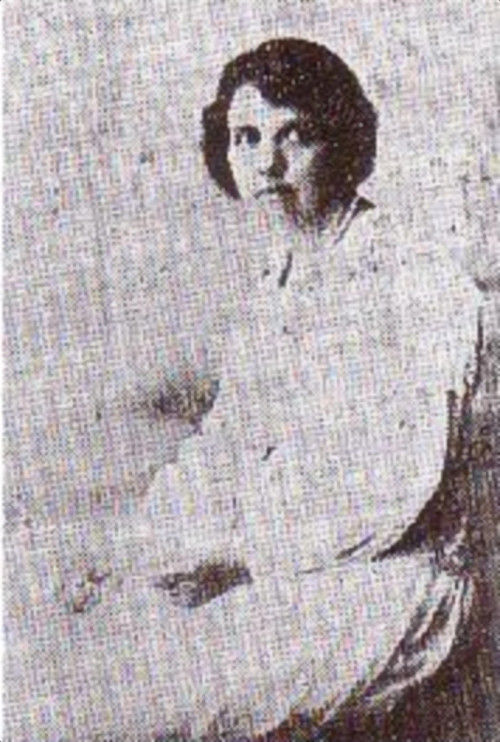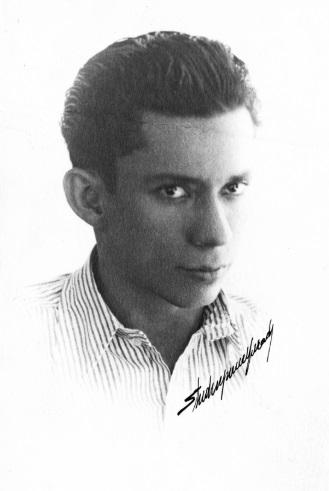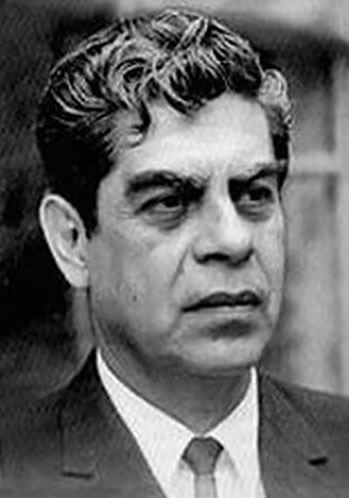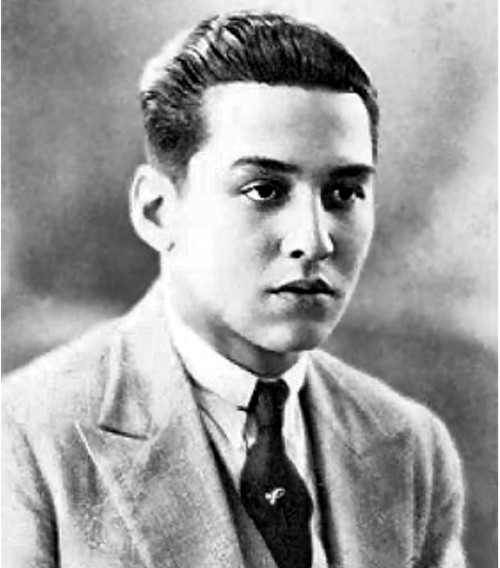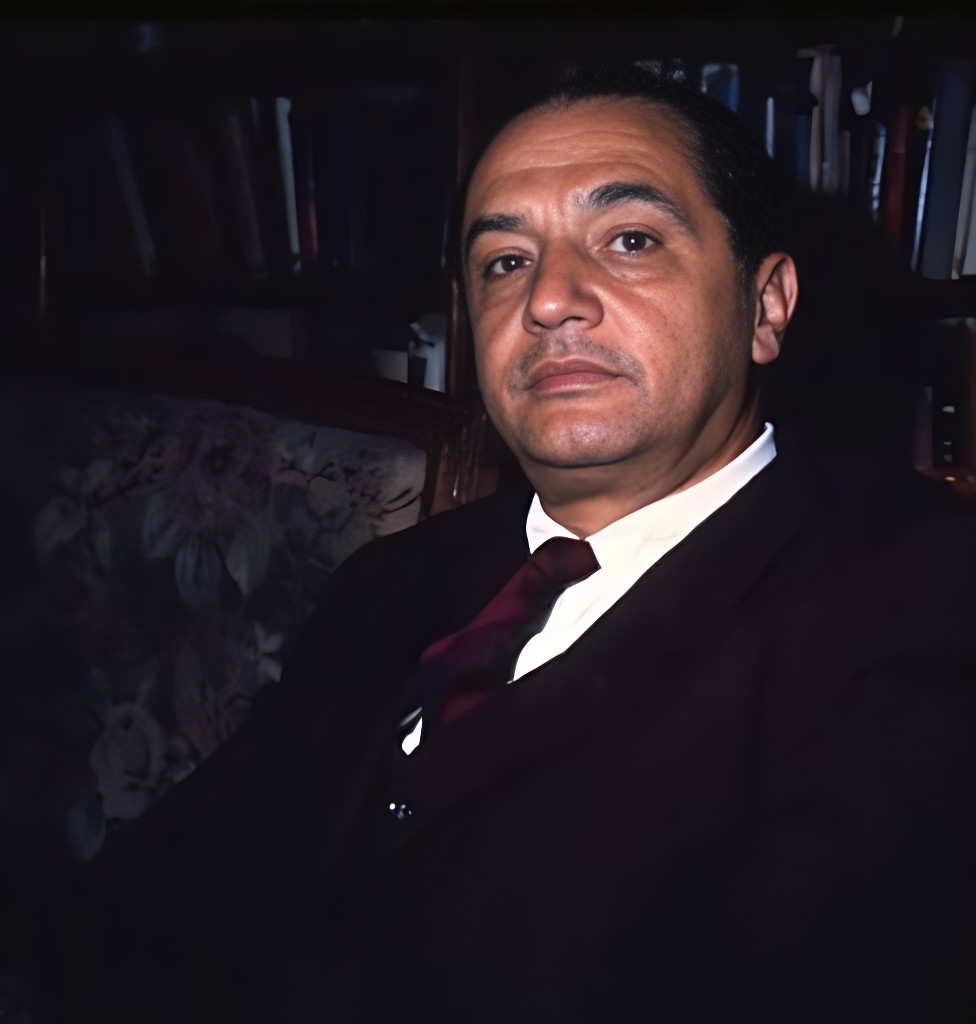Humberto Salvador Guerra (Guayaquil, December 25, 1909 – Ibidem, January 17, 1982) was an Ecuadorian writer, editor, jurist, psychoanalyst, and literature professor. His early literary works associated him with the avant-garde movement in Ecuador, publishing notable works such as the novel “En la ciudad he perdido una novela…” (1930). However, he shifted towards social realism in his later works, with novels such as “Camarada” (1933), “Trabajadores” (1935) and “Noviembre” (1939). Known for his exploration of human psychology and his bold examination of societal issues, Salvador’s works displayed a remarkable depth of insight and a willingness to challenge traditional norms. His remarkable literary legacy includes 13 novels, 4 short story collections, 2 plays, and a groundbreaking doctoral thesis titled “Esquema sexual” that has gone though many editions.
Continue reading “Humberto Salvador”Category: Social realist writers
Gonzalo Ramón
Gonzalo Ramón (Guayaquil, 1912 – Unknown) was an Ecuadorian novelist, poet, essayist, and literary critic. He is best known for his novels Tierra baldía (1957, Barren Land), which exposed the exploitation of Afro-Ecuadorians in banana plantations, Clavellina (1971, Little Carnation), which won a prize from the National Union of Journalists, and Guandal (1976, Swampland), which earned the National Literature Award. Ramón also wrote literary criticism, most notably on the Ecuadorian poet César Dávila Andrade, and his long poem Elegía de la creación, carta a mi hija (1965, Elegy of Creation, Letter to My Daughter) presents an ambitious exploration of the origins and evolution of life.
Continue reading “Gonzalo Ramón”Miguel Riofrío
Miguel Riofrío Sánchez (Loja, Ecuador, September 7, 1822 – Lima, Peru, October 11, 1879) was an Ecuadorian poet, novelist, journalist, orator, educator, lawyer, and politician. He is best known today as the author of “La Emancipada,” Ecuador’s first novel, which was published in installments in the newspaper La Unión in 1863. Many experts however argue that because the book is usually less than 100 pages long in print, it is really a novella rather than a novel, and that Ecuador’s first novel is in fact “Cumanda” (1879) by Juan León Mera. Nonetheless, Miguel Riofro’s “La Emancipada” has been accepted as Ecuador’s first novel, thanks to the arguments of the well-known and respected Ecuadorian writer Alejandro Carrión (1915-1992).
Continue reading “Miguel Riofrío”Sergio Nuñez
Sergio Núñez Santamaría (Santa Rosa, Ambato, October 7, 1896 – Quito, 1982) was a novelist, short story writer, poet, playwright, literary critic and pedagogue. As a poet, he wrote in verse and prose, and was greatly influenced by the modernismo literary movement of Ruben Dario of Nicaragua. In 1918 he published his first poetry book, “Hostias de fuego,” with a prologue by Medardo Ángel Silva. He belonged to the “30 Generation,” a group of authors from the 1930’s Ecuador who used social realism in their fiction to denounce how Indians were treated in Ecuador. His novellas “Juego de hacienda” and “Circunferencia” are considered Indigenista fiction. A private school in Guayaquil bears his name.
Continue reading “Sergio Nuñez”Ricardo Descalzi
Ricardo Descalzi del Castillo (Riobamba, September 22, 1912 – Riobamba, November 29, 1990) was an Ecuadorian novelist, historian, playwright, short story writer, translator, literary critic, university professor and medical doctor. In 1928, he founded the magazine Surcos with his Mejía National Institute classmates José Alfredo Llerena and Arturo Meneses. After graduating from high school in 1932, he published “Ghismondo,” a 100-page novel based on his experiences as a student. He also wrote the novel “Saloya” (1962), a short story collection “Los murmullos de Dios” (1959), and the stage plays “Los Caminos Blancos” (1939), “En el horizonte se alzó la niebla” (1961), and “El huasipungo de Andrés Chiliquinga” (1981). His six-volume “Historia crítica del teatro ecuatoriano” is perhaps his most important work (1968). Among his translations is “Poemas” (1969), a French-to-Spanish translation of poems by Nobel laureate Jean Poilvet Le Guenn. The Tobar Prize was bestowed upon him by the municipality of Quito in 1968. He was a member of the House of Ecuadorian Culture, the National Academy of History, and the Bolivarian Society of Quito, where he served as its vice president.
Continue reading “Ricardo Descalzi”Elysa Ayala
Elysa Ayala González, sometimes spelled Elisa Ayala González (Guayaquil, 1879 – 1956) was an Ecuadorian writer and painter. She was Ecuador’s first fiction writer and the first woman to write stories about montubios, the poor and simple peasants from Ecuador’s coast. Because of the sexist and conservative climate in Ecuador at the time, Elysa’s early works appeared mostly in foreign magazines, such as Nubes Rosadas and Revista Argentina (Argentina), Sucesos and El Nacional (Chile), Adelante (Uruguay), Hero and Cosmos (Cuba), América (the United States), and La Voz de Valencia (Spain). In Ecuador, her stories appeared in La Ilustración and some other magazines. Being fluent in English and French, she translated some of her stories into these languages. It should be noted that part of her literary work remains unpublished, including a novel about the peasant class, which was her preferred motif.
Continue reading “Elysa Ayala”Joaquín Gallegos Lara
Joaquín Gallegos Lara (Guayaquil, April 9, 1909 – Ibidem, November 16, 1947) was an Ecuadorian novelist, short story writer, poet, and literary critic. His works often reflected the social and political issues of his time, including poverty, inequality, and injustice. He was a member of the Communist Party of Ecuador and was imprisoned many times for his political convictions. Lara was born with Pott’s Disease, a rare spinal disease which caused paralysis in his legs. Due to his inability to walk, he was unable to attend school and instead devoted himself to self-study at home, in which time he mastered the French, German, Italian, and Russian languages. He was a member of the “Guayaquil Group,” and has been described as the group’s spiritual leader. The book of short stories “Los Que Se Van” [Those Who Leave] (1930), co-authored with Demetrio Aguilera Malta and Enrique Gil Gilbert, marked the beginning of literary social realism in Ecuador. His most famous novel, “Las cruces sobre el agua” [Crosses on the Water] (1946), is concerned with the November 15, 1922 massacre of striking workers in Guayaquil. Despite his brief life, Joaquín Gallegos Lara’s works are still widely read and continue to be studied and recognized for their profound impact on Ecuadorian literature.
Continue reading “Joaquín Gallegos Lara”Enrique Gil Gilbert
Enrique Gil Gilbert (Guayaquil, July 8, 1912 – Ibidem, February, 21, 1973) was an Ecuadorian novelist, short story writer, nonfiction writer, politician and teacher. He was the youngest member of the “Guayaquil Group,” a group of realist writers of the 1930s Ecuador. At only eighteen years of age he co-wrote “Los que se van, cuentos del cholo y del motuvio“ (1930) with Demetrio Aguilera Malta and Joaquín Gallegos Lara – a book of short stories which marked the beginning of literary realism in Ecuador. His most famous work is his only novel, “Nuestro pan” (1942), which was translated into English in 1943 as “Our Daily Bread.” His other noteworthy story collections include: “Yunga,” “Relatos de Emanuel” [Tales of Emanuel], and “La cabeza de un niño en un tacho de basura” [The Head of a Child in a Trash Can].
Continue reading “Enrique Gil Gilbert”José de la Cuadra
José de la Cuadra Vargas (September 3, 1903 – February 27, 1941) is considered one of Ecuador’s greatest authors. De la Cuadra was a social realist novelist who wrote the short story La Tigra (1932) and the novel Los Sangurimas (1939). He was a part of the “Guayaquil Group,” a group of young social protest novelists from Guayaquil, Ecuador, in the 1930s, which included Enrique Gil Gilbert, Demetrio Aguilera Malta, Joaqun Gallegos Lara, and Alfredo Pareja Diezcanseco.
Continue reading “José de la Cuadra”Jorge Icaza
Jorge Icaza Coronel (Quito, June 10, 1906 – Ibidem, May 26, 1978) is indisputably the most renowned Ecuadorian author of the 20th century. His impactful storytelling, exemplified in critically acclaimed novels such as “Huasipungo” and “El Chulla Romero y Flores,” presented an unflinching portrayal of Ecuadorian societal conditions, particularly the trials of indigenous and mestizo communities. Icaza’s “Huasipungo,” which brought the issue of rural exploitation to the global stage, has been translated into more than 15 languages, including two English versions, signifying his far-reaching influence. His status as Ecuador’s literary giant is not just confined to his homeland; his work has significantly shaped Latin American literature. His later role as Ecuador’s ambassador to Russia further exemplifies his multifaceted contributions. Icaza’s legacy has transcended time; his work continues to inspire and influence, marking him as a towering figure in Ecuadorian and Latin American literature of the 20th century.
Continue reading “Jorge Icaza”
